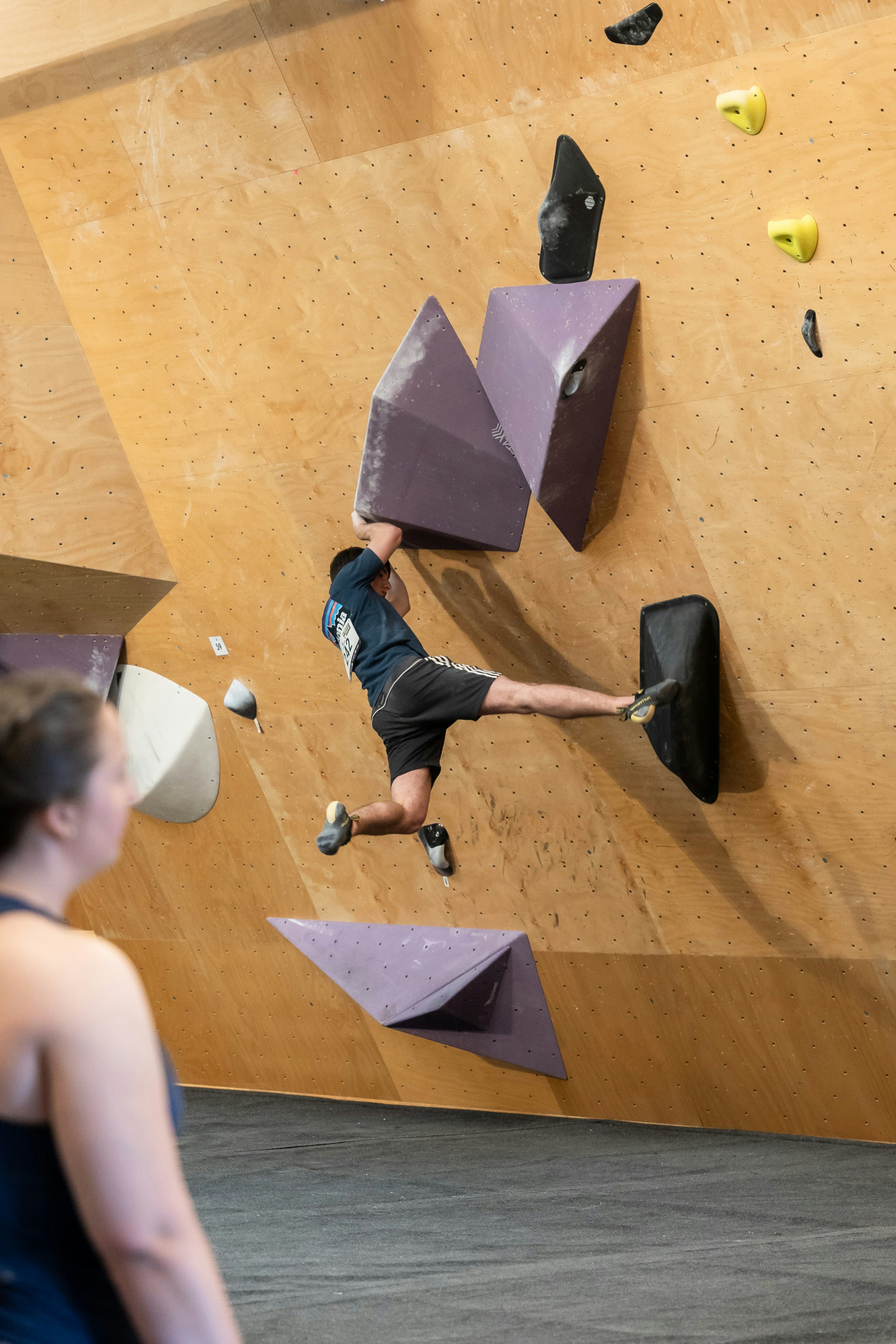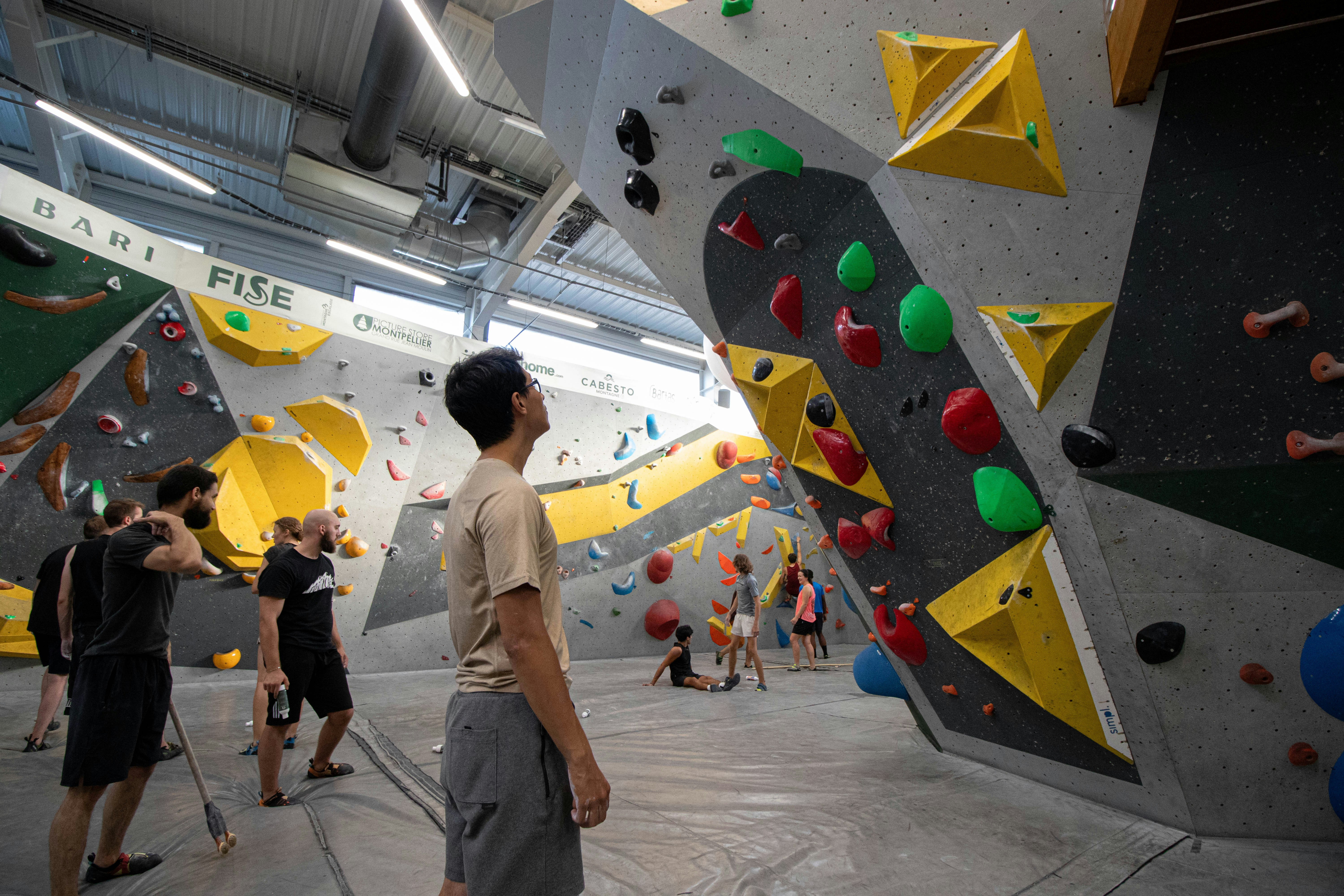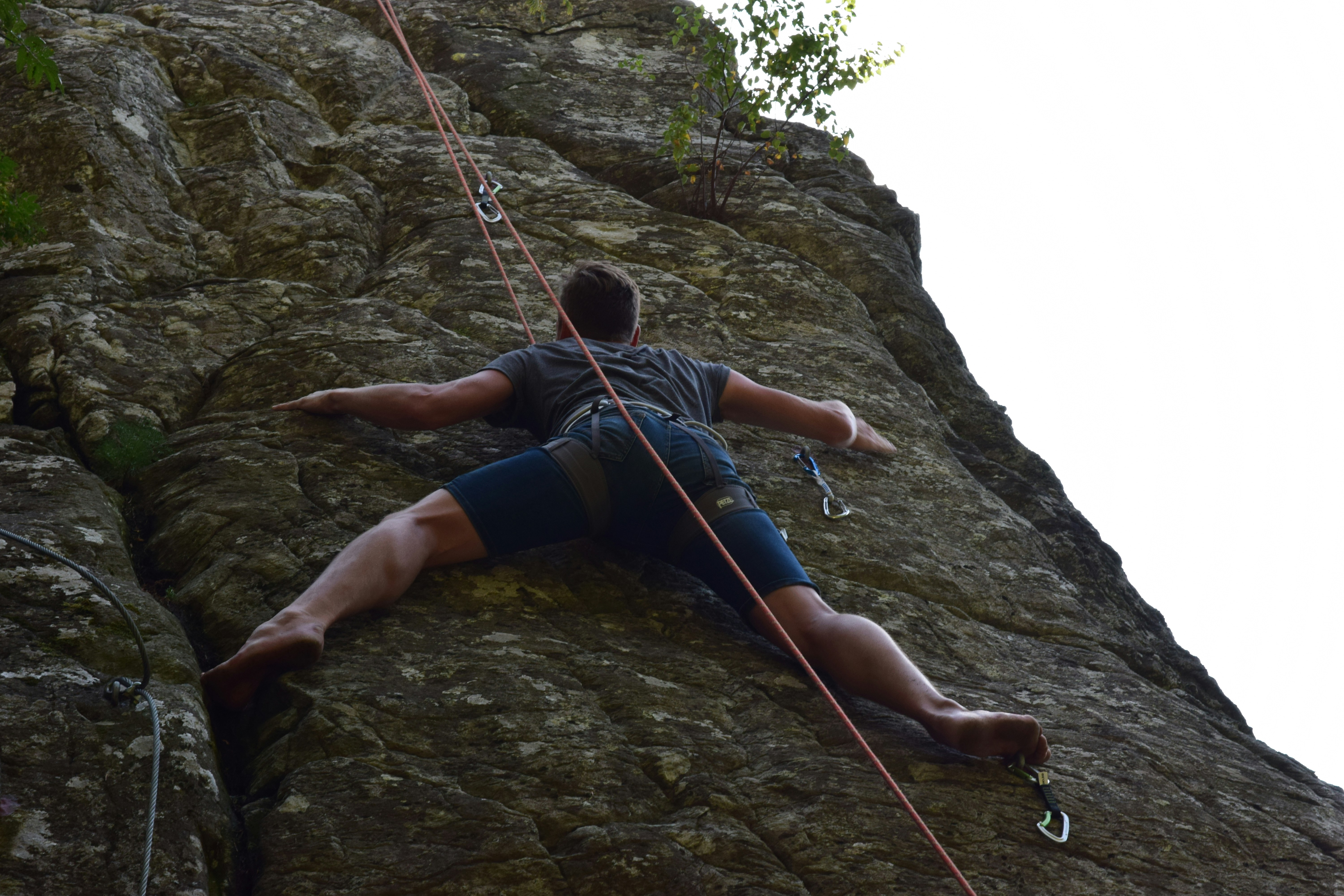Right now, as I write this, the world's best climbers are battling it out in Seoul at the 2025 IFSC Climbing World Championships. If you've been following the competition, you know the finals started yesterday with the women's speed event, and we're witnessing some absolutely incredible climbing. But here's what makes this World Championships particularly fascinating from a competitive climbing perspective - it's showing us exactly where the sport is heading and what that means for climbers at every level.
The Seoul Championships represent the 19th edition of this prestigious event, and they're happening at a pivotal moment in climbing's evolution. Post-Olympics, the sport has gained unprecedented visibility, and the level of performance we're seeing reflects years of refined training methodologies, route-setting innovation, and a deeper understanding of what it takes to perform at the highest level.
The Current State of Elite Competition
Watching the Seoul World Championships unfold over these six days reveals something crucial about modern competition climbing - the margins between success and failure have become impossibly thin. In the women's speed final that kicked off yesterday, we saw times that would have been unthinkable just a few years ago. This isn't just about athletes getting stronger or faster; it's about a fundamental shift in how climbers approach competition preparation and mental performance.
What strikes me most about this year's championship field is the depth of talent across all three disciplines. We're not seeing the same handful of names dominating every event anymore. The level has risen so dramatically that climbers who might have been afterthoughts in previous championships are now legitimate medal contenders. This democratization of elite performance has profound implications for how we think about training and competition climbing at every level.
The route setting in Seoul has been particularly revealing. The problems and routes are showcasing a new generation of movement vocabulary that's filtering down from the elite level to local gym competitions. If you've noticed that your local comp routes feel more dynamic, more coordination-dependent, more technically complex - this is why. The Seoul setters are pushing athletes to demonstrate skills that go far beyond pure strength or endurance.
Speed Climbing's Evolving Role
The speed discipline at these World Championships deserves special attention because it's become something entirely different from what most climbers experience in their home gyms. The men's and women's speed qualifications and finals this week have shown us climbing that's closer to sprinting than traditional route climbing. Times under five seconds are becoming routine rather than exceptional.
But here's what's interesting for competitive climbers at all levels - the mental approach required for speed climbing is teaching us about performance under pressure that applies directly to bouldering and lead climbing. The focus, the breath control, the ability to execute precise movement sequences when everything is on the line - these are skills that transfer beautifully to other disciplines.
Speed climbing at the Seoul Championships also highlights something crucial about modern competition preparation. The athletes performing best aren't necessarily the strongest or most technical climbers overall. They're the ones who've developed the most consistent, repeatable movement patterns and the mental framework to execute under extreme pressure. This lesson applies whether you're climbing in Seoul or at your local gym's monthly comp.
Bouldering Evolution on Display
The boulder semifinals and finals scheduled for this weekend promise to showcase how dramatically competition bouldering has evolved. If early rounds are any indication, we're seeing problems that require a completely different skill set than what dominated championships even five years ago. The emphasis has shifted toward coordination, dynamic movement, and what can only be described as movement creativity.
These Seoul boulder problems are teaching us something important about training for competition bouldering. Pure finger strength and campus board prowess matter, but they're no longer the primary determining factors. The climbers advancing to finals are the ones who can adapt quickly to unusual movement patterns, who can problem-solve in real time, and who maintain composure when initial attempts don't go according to plan.
What's particularly fascinating is how the boulder setting in Seoul reflects trends we're seeing in competition climbing worldwide. The problems require climbers to be comfortable with instability, to make commitments to moves before fully understanding the sequence, and to trust their movement instincts rather than over-analyzing. These are skills that benefit every competitive climber, regardless of level.
Lead Climbing's Technical Sophistication
Tomorrow's lead semifinals and finals represent what many consider the purest form of competition climbing, and the Seoul route setting has pushed technical complexity to new levels. These aren't just endurance tests or strength challenges - they're comprehensive examinations of every aspect of climbing ability.
The lead routes in Seoul demonstrate something crucial about modern competition climbing - route reading has become as important as physical ability. The climbers who excel aren't just the strongest or most enduro-capable; they're the ones who can decode complex sequences quickly and execute them efficiently. This shift toward technical sophistication is filtering down to every level of competition climbing.
What makes the Seoul lead climbing particularly relevant for developing competitors is how it showcases the importance of movement efficiency. At this level, every wasted movement, every moment of hesitation, every inefficient sequence becomes magnified. The lessons about smooth, controlled climbing that we see in these championships apply directly to competitive climbing at every level.
Mental Performance Under Championship Pressure
Perhaps the most valuable insight from watching the Seoul World Championships unfold is what it reveals about performing under ultimate pressure. This isn't just another World Cup event - this is the competition that defines careers, that climbers train for over multi-year cycles. The mental demands are extraordinary, and watching how elite athletes handle them provides a masterclass in competition psychology.
The competitors who thrive in Seoul aren't just physically prepared; they've developed sophisticated mental frameworks for handling pressure, uncertainty, and the inevitability of mistakes. They've learned to climb with their nerves rather than despite them. These mental skills are perhaps the most transferable aspect of what we observe at the championship level.
Competition climbing at this level also demonstrates the importance of process focus over outcome focus. The athletes performing best in Seoul are those who remain absorbed in the immediate task - the next move, the current sequence - rather than getting caught up in medal calculations or comparison with other climbers. This approach works whether you're climbing in Seoul or at your first local competition.
Training Implications for Competitive Climbers
Watching the Seoul World Championships provides a roadmap for how competitive climbers at every level should approach their training. The athletes excelling in Seoul have clearly prioritized movement quality, mental resilience, and adaptability over pure strength metrics. Their training has emphasized skills that transfer across disciplines rather than specialization in single areas.
The speed of problem-solving we're witnessing in Seoul suggests that competitive climbers need to spend more time practicing route reading and less time grinding strength. The ability to quickly decode sequences, adapt when initial attempts fail, and maintain composure under pressure are learnable skills that these championships showcase beautifully.
Recovery and consistency emerge as crucial themes when observing championship-level performance. The climbers succeeding in Seoul aren't just performing at their peak; they're maintaining that peak across multiple rounds, across different disciplines, across six demanding days of competition. This consistency comes from intelligent training periodization and sophisticated recovery protocols.
Route Setting Evolution and Its Impact
The Seoul Championships showcase route setting that's evolved far beyond simple strength or endurance tests. Modern competition setting, as demonstrated in these championships, requires climbers to be movement generalists rather than specialists. Problems and routes demand comfort with dynamic movement, technical precision, and creative problem-solving in equal measure.
This evolution in route setting philosophy has profound implications for how competitive climbers should train. The days of succeeding in competitions through pure fingerboard strength or hangboard endurance are largely over. Seoul demonstrates that modern competitive climbing rewards versatility, adaptability, and movement creativity above specialized strength.
The complexity of movement required in Seoul also highlights the importance of developing proprioception and body awareness. The athletes performing best are those who can execute precise movements while managing complex body positions and maintaining awareness of their center of gravity. These skills develop through diverse movement practice rather than climbing-specific training alone.
What Seoul Means for Competitive Climbing's Future
The 2025 World Championships in Seoul represent more than just another competition - they're a preview of where competitive climbing is heading. The level of performance, the sophistication of movement, and the mental demands we're witnessing establish new benchmarks for what's possible in the sport.
For climbers interested in competition at any level, Seoul demonstrates that success requires holistic development rather than specialization. The most successful competitors are developing skills across multiple disciplines, emphasizing movement quality and mental performance alongside traditional strength and endurance training.
The Seoul Championships also highlight how competitive climbing has become more accessible despite the rising elite level. The skills and approaches demonstrated by world-class athletes translate directly to local competition success. The same mental frameworks, movement principles, and training philosophies that work in Seoul work in your local gym's monthly comp.
Lessons for Your Next Competition
Whether you're preparing for your first local competition or working toward regional success, the Seoul World Championships offer concrete lessons you can apply immediately. The emphasis on movement efficiency over raw strength, the importance of mental preparation, and the value of adaptability over rigid planning all translate directly to competitive climbing at every level.
Perhaps most importantly, Seoul demonstrates that competitive climbing success comes from embracing the process rather than fixating on results. The athletes thriving in these championships are those who remain present, who focus on executing their preparation rather than managing their anxiety about outcomes. This approach works whether you're climbing for world championship medals or personal bests at your local gym.
The Seoul World Championships remind us that competitive climbing, at its core, remains about problem-solving, adaptation, and pushing personal limits. The stakes may be different, the audience larger, and the pressure more intense, but the fundamental skills that lead to success remain the same across all levels of competition.
As the championship continues through Sunday's men's boulder final, we're witnessing not just exceptional athletic performance but a masterclass in what modern competitive climbing demands. The lessons from Seoul will influence how climbers train, compete, and think about the sport for years to come. Whether you're watching from Seoul's stands or following online from your local gym, you're observing the future of competitive climbing unfold in real time.


